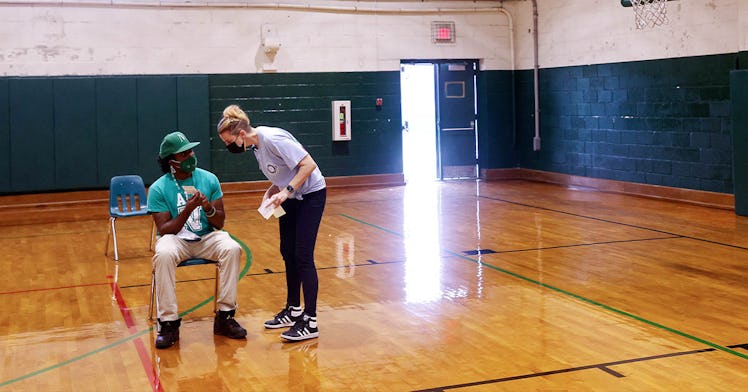Employers Refuse to Give Workers Paid Time Off, Slow Vaccination Rates
In the absence of a federal mandate, economic desperation is keeping vaccination rates artificially low.

A new Kaiser Family Foundation survey of 1,888 adults done in June has found that one reason that vaccination rates aren’t low could be because employers aren’t giving low-wage workers paid time off to go get their shots.
The Kaiser Family Foundation survey found that only half of their employers were providing paid time off “for workers to get the vaccine and recover from any side effects.” That same study found that around 20 percent of those who were unvaccinated said they would be more likely to get the shot if their employer didn’t make them miss out on income to do so.
This is significant because three-quarters of those who had employer-provided time off had already received one dose by the time they were surveyed, compared to just over half of those who didn’t. That’s a huge demonstrated difference—not a theoretical one. It shows that giving people paid time off to get vaccines could boost rates at a time when Delta is overwhelming hospitals across the country.
“There is a share of the public that does not want the vaccine, but among those in the wait-and-see group, the lack of time off is a major problem,” Ashley Kirzinger, associate director for the Public Opinion and Survey Research team at Kaiser told the Washington Post. “And it disproportionately affects those with lower levels of income and those unable to take time off.”
If the goal is to get as many people vaccinated as quickly as possible, it seems that a mandate for employers to provide paid time off to employees would be in order.
At the beginning of the pandemic, Congress passed a paid leave program that mandated employers provide time off to employees who tested positive for COVID-19, but it excluded companies with more than 500 employees from the requirement, denying millions of workers what should be an obvious protection.
When that mandate expired, President Biden made a “call to action” to restore the mandate, but Democrats said the best Congress could do under the terms of budget reconciliation was a voluntary program.
The White House has touted the more than four dozen companies providing either paid leave or $100 bonuses to employees. While that’s great, it’s not enough to confront a problem on the scale of COVID-19.
“We have ample evidence that relying on employer-voluntary policies to protect people in this pandemic is not working,” Rachel Deutsch, an attorney at the Center for Popular Democracy told the Post. “The Biden team has done a terrific job in vaccination work, but it seems clear we’re going to hit a wall with vaccinations as a result of an inadequate federal leave policy.”
To its credit, the Biden administration did include paid leave in its $3.5 trillion budget plan. However, that bill could take weeks to pass, and it’s far from certain that this provision will make it through conservative Democrats’ potential objections. That’s a lot of time for those who can’t afford to miss work to get vaccinated to contract, spread, and/or become seriously ill from COVID-19.
And let’s be honest: some workers are going to die from COVID-19. They won’t be helped by the fact that there’s no federal mandate for paid vaccine leave. That’s abhorrent, and yet another instance of the pandemic revealing just how cruel the United States can be to its most vulnerable residents.